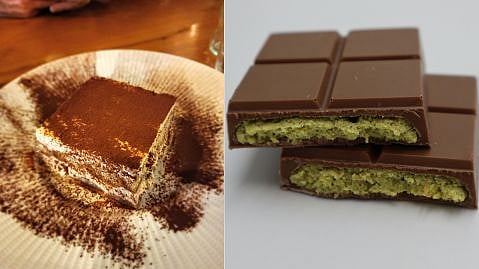As the seasons change, we must turn to nature and look at what it offers us because it knows how to prepare us for the upcoming season. Our food choices play a huge role in getting us through seasonal changes with minimal health issues. Our grandparents, to date, changed their food choices as they transitioned from summer to monsoon and to winter. They would start preparing warm foods that fit the cold season and cooling foods that suit summer.
Speaking about winter, as the temperatures dip, we naturally move towards warming foods for better thermoregulation, to boost immunity, keep inflammation low, maintain supple and moisturised skin, nourished hair, and, most importantly, to keep away from sneezing, asthma, and blocked noses.
Here are the top 10 highly recommend food to stock up this winter season.
Jaggery: This healthy sugar alternative has immense warming properties. Being rich in iron, it is also an excellent choice for anaemics. Maintaining adequate iron levels during winter is vital, as iron aids in binding oxygen to RBCs. The lower the iron levels, the lesser the availability of oxygen in the body, and the colder you feel. Jaggery also acts as a powerful lung cleanser and can benefit people living in high pollution and winter smog zones.
Chikki (Peanut/sesame Brittle): Winter is the season to eat chikkis or desi energy bars. A lot of commercially bought chikki is loaded with liquid glucose, white sugar, and maltodextrin. You can make chikki at home with sesame seeds or peanuts and jaggery. These foods generate good heat in the body. Sesame seeds are a rich source of calcium, zinc, manganese, and iron to keep the bones strong and ensure healthy blood circulation.
Bajra (Pearl Millet): Winter is the best time to enjoy a hearty meal made out of bajra. This rustic grain is rich in fibre and increases blood circulation, thereby generating body health. One can make rotis (flatbreads), laddoos, crackers, or even khichdi from bajra. If your gut health is not a concern, it’s best to give your regular grains a break and turn to winter grains like bajra, maize, ragi, and so on.
Root vegetables: Nature provides us with an abundance of root vegetables this time of the year for a very good reason. Root vegetables are a rich source of beta carotene, fibre, potassium, and manganese, most of the B vitamins and antioxidants. For example, sweet potatoes, beets, yams, turnips, and carrots. Energetically, these vegetables are great for making us feel grounded.
Panjiri: Panjiri is an Indian seasonal staple primarily from the Punjab region. It is traditionally made of whole wheat flour and heavily laced with nuts, seeds, and edible gum. It is often treated as a nutritional supplement to ward off the cold during winter. Considered a ‘heaty food’, it helps promote lactation and is usually given to nursing mothers. Panjiri also has religious significance as it is offered as a prasad to the Lord.

With winters, several infections and allergies make their way into our lives. There is immense wisdom in traditional recipes created by our grandmothers to overcome these seasonal health challenges. The region of Punjab proudly owns this super nutritious, immunity-boosting recipe, panjiri. One can make different versions of this using whole wheat, millet, sattu, or moong dal flour and to this, add ghee, nuts, dry fruits, and spices like cardamom, fennel seeds, saffron, and nutmeg.
Raab / Porridge: This can be prepared with ragi or bajra. A warm bowl of raab is hugely beneficial, as it keeps the body warm and prevents mucus formation.
Garden Cress Seeds: Garden cress seeds or halim/aliv is a tiny treasure trove of nutrients. It is loaded with iron and an excellent source of folic acid, vitamins C, A, and E, dietary fibre, calcium, and protein. It also increases body heat. Soak one teaspoon of these seeds and add them to smoothies or ladoos or have it with lemon water.

Ghee: Pure and ethically sourced A2 ghee is one of the most easily digestible fats capable of generating instant heat and energy to keep your body warm. A moderated consumption of ghee can also help keep skin from getting dry and flaky. Switch over to ghee as a cooking medium, or add it to your roti, rice, or khichdi during winter.
Fresh Turmeric Root: It is an anti-bacterial, anti-inflammatory, anti-viral, anti-fungal, and potent warming spice that helps stimulate your immune system. Have one teaspoon of this with salt and lemon, or add it to pickles or turmeric milk.
Nature is well-primed to give you the best of everything for any given season. It knows what your body needs as the environment changes. It’s up to us to make the right choice. Choose wisely.

Amla: The humble Indian gooseberry comes packed with immunity-boosting vitamin C, which keeps infections at bay. You can have amla in the form of murabba, pickles, candies, chutneys, juice, or eat as is with a sprinkle of black pepper powder.
(Luke Coutinho is Holistic Nutrition and Lifestyle — Integrative and Lifestyle Medicine, Founder of You Care - All about YOU by Luke Coutinho)











